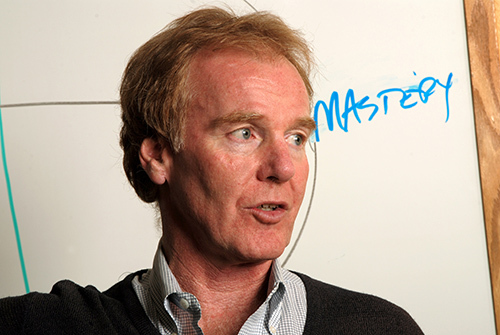
No Chefes IB Conferência Mundial em Haia, I talked to Peter Senge, the renowned expert on systems, business management and learning, and senior lecturer at MIT. His bestselling book, The Fifth Discipline: The Art and Practice of The Learning Organization, teaches companies how to be smarter by fostering aspiration, developing reflective conversation and understanding complexity. Na entrevista que se segue, he discusses the differences between learning systems in business and education, and why he thinks right now we are having an “Education Renaissance.” He also offers summaries of his innovative educational systems and some successful learning strategies for the 21st century, such as abandoning monolithic tests and requirements, recognizing that there are many different types of learners, and the IB program. Adicionalmente, he looks at some of the setbacks in creating innovative change. His advocacy for “learning-centered” schools gives a jolt to education as important as the one he gave to business with The Fifth Discipline.
How do you define a learning “sistema”? How do you see the main differences between systems thinking for business and for education?
The obvious difference starts with the aims. In business, you are trying to achieve a business mission that involves serving some particular customer. na educação, you are trying to grow people. This also involves the aim of serving a “customer” but in many ways the customer is a bad metaphor used too casually in education, because the students are both the “receivers” and the co-creators of learning. But mostly, they need to be seen as the co-creators. Learning occurs when learners learn. So this is not simply a matter of professionals (isto é. professores) producing a particular type of product (alunos). It is a joint process of exploration and mutual development.
A common element that connects both business and education is the need to grow an organizational climate or culture that supports ongoing collaboration, risk-taking, and a deep sense of purpose and commitment. So in this particular way, leadership is quite similar in education as in business. What I always remind people is the single biggest difference from a leadership standpoint is the complexity of the school — in particular the complexity of the stakeholder environment. Businesses have no stakeholder analogous to a parent. Parents have a profound commitment to school because they have a deep commitment to the well-being and growth of their children. But what also comes along with that is the potential for fear and avoidance of taking risks that could adversely influence my child. por fim, the political context of education is very different, especially in public education. But for all education, there is a degree of visibility that goes with how we educate kids that is quite different than in business.
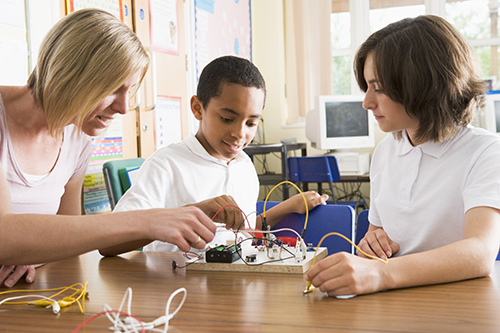
How can we also avoid the traps of treating education as a business when the product needs to be human beings who can lead satisfying lives?
I think the simple response is we have to keep remembering our purpose. In education it is to grow people and to help society evolve. There are these two fundamentally different but related purposes in education: benefiting students and benefiting the future of our society. Education is the only institution in society that has a 50 a 70 ano horizonte de tempo. It has the strongest potential to influence the future, just as business has the greatest power in the present. But no business has a time horizon of this scope and the potential to have the sort of impact on society that education does.
What school systems or schools are you familiar with that have established a collaborative inclusive learning organization? What are the key measures of success they have shown?
Within the SoL Education Partnership, there are now 15-20 school districts with close to about 1000 schools all together. When you visit these schools, you’ll see a profound shift in the climate, from the classroom to the school as a whole. Teachers and students learning together. A real appreciation for the leadership of students in the ongoing process of transforming education, ongoing inquiry, reflection and innovation in pedagogy. Em resumo, these schools really do create learning environments.
The very first thing you notice when you consider the consequences of this effort is deep engagement by teachers and students. Teachers are learning, the students are learning. Os dois estão ligados porque ambos estão contribuindo para um ambiente global de aprendizagem contínua. Segundo, você ver a profundidade da aprendizagem. Hoje, há demasiada ênfase no domínio superficial da técnica, em vez de um aprendizado mais profundo, por exemplo, nas ciências e matemática. por fim, você começa a notar um alcance mais abrangente para muito diversos alunos. Porque há uma forte ênfase em habilidades de pensamento visuais, especialmente nas primeiras idades, learners who are operating in a language that is not their native language do not find themselves in the same disadvantage as in the classroom emphasizing only verbal skillfulness.
Perhaps the greatest single outcome is the growing evidence that the whole systems approach connects very deeply with the intuitive systems thinking capabilities of all children. Por exemplo, the many learners who struggle with the traditional pedagogy and the traditional cultural bias towards certain types of learning (like verbal facility and rapid deductive reasoning) are no longer disadvantaged in an environment that is focused on relationships and processes of change.
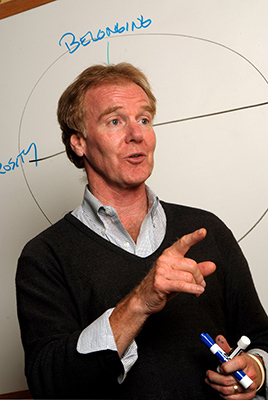
What is different about learning outcomes needed for the 21st century versus the 20th century in terms of the key competencies required? How do you see the key competencies required of teachers to enable this?
The key differences in competencies I believe lay in the depth of understanding; a valorização de interdependência e colaboração; e cabeça reconectando, heart and hand. Children need to come to a deep confidence that they can learn, that they can solve complex problems and that they can do this together. The problems we face in our societies – from global problems with like climate change to more local ones like inequity and loss of purpose and connection to one another – are beyond the reach of existing institutions and their reliance on hierarchical authority. People need to collaborate to solve these problems and this is where students need to build new competencies. Fostering this collaborative learning of how to face the challenges that mean the most to us will require teachers who are engaged in building the same competencies. We teach who we are not just what we know. Teachers who are used to working in silos and standing and delivering the curriculum will be unable to meet the needs of today’s learners. This is why leadership, like principals who build school cultures of collaboration and risk taking, is so important.
What do you see as the most concerning shortcomings of the 21st century learning environment? How can teachers and students work to counteract these shortcomings?
Fragmentation and excessive individual competition destroy the natural spirit of learners who truly want to learn. Over a very long time, school has become a place of performing for a teacher’s approval, or scoring on the test. This was never conducive to learning and it is less credible for students who no longer expect teachers to be the font of all knowledge, since they have access to so much information on their own, but really need teachers who join the learning process with them, as guides and co-learners. Fragmentation can only be overcome by an education process that is deeply rooted in the interconnectedness of knowledge, just as excessive competition can only be overcome by building cultures that strike a more healthy balance between individual and collective learning.

What would be your ideal vision for education in 2030?
That the variety of schools matches the variety of learners. We all learn in different ways and a truly learning-centered school (versus a teaching-centered school) will be able to serve many types of learners. Such a school would also be far more embedded in the larger community, so that parents and family are deeply connected as well to the learning process – alunos, teachers and community members building more healthy communities.
How do you see the strengths of the IB curriculum and learning system in this regard?
IB has an extraordinary infrastructure to support learning across cultures and contexts. Guided by a shared philosophy of learning as deep human development, IB could be a world leader in continually testing out new ideas and accelerating the spread of fundamental innovations like systems education. Without a good network for testing and diffusing ideas like this that have so much promise, they will never get refined and grow. There is no one answer to what is needed for the future of education. What is most needed is communities of collaboration exploring rigorously the territory of deeper learning that can truly serve our most basic societal needs. My feeling is that the IB network is already stepping into this space.
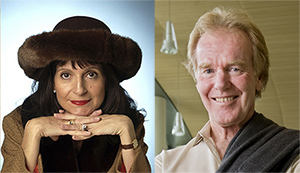
(All photos are courtesy of Peter Senge and the IB Organization)
Junte-se a mim e líderes de renome mundial, incluindo Sir Michael Barber (Reino Unido), Dr. Michael Bloco (EUA), Dr. Leon Botstein (EUA), Professor Clay Christensen (EUA), Dr. Linda, Darling-Hammond (EUA), Dr. MadhavChavan (Índia), Professor Michael Fullan (Canadá), Professor Howard Gardner (EUA), Professor Andy Hargreaves (EUA), Professor Yvonne Hellman (Holanda), Professor Kristin Helstad (Noruega), Jean Hendrickson (EUA), Professor Rose Hipkins (Nova Zelândia), Professor Cornelia Hoogland (Canadá), Honrosa Jeff Johnson (Canadá), Senhora. Chantal Kaufmann (Bélgica), Dr. EijaKauppinen (Finlândia), Secretário TapioKosunen Estado (Finlândia), Professor Dominique Lafontaine (Bélgica), Professor Hugh Lauder (Reino Unido), Senhor Ken Macdonald (Reino Unido), Professor Geoff Mestres (Austrália), Professor Barry McGaw (Austrália), Shiv Nadar (Índia), Professor R. Natarajan (Índia), Dr. PAK NG (Cingapura), Dr. Denise Papa (US), Sridhar Rajagopalan (Índia), Dr. Diane Ravitch (EUA), Richard Wilson Riley (EUA), Sir Ken Robinson (Reino Unido), Professor Pasi Sahlberg (Finlândia), Professor Manabu Sato (Japão), Andreas Schleicher (PISA, OCDE), Dr. Anthony Seldon (Reino Unido), Dr. David Shaffer (EUA), Dr. Kirsten Immersive Are (Noruega), Chanceler Stephen Spahn (EUA), Yves Theze (LyceeFrancais EUA), Professor Charles Ungerleider (Canadá), Professor Tony Wagner (EUA), Sir David Watson (Reino Unido), Professor Dylan Wiliam (Reino Unido), Dr. Mark Wormald (Reino Unido), Professor Theo Wubbels (Holanda), Professor Michael Young (Reino Unido), e Professor Minxuan Zhang (China) como eles exploram as grandes questões da educação imagem que todas as nações enfrentam hoje.
A Pesquisa Global para Educação Comunitária Página
C. M. Rubin é o autor de duas séries on-line lido pelo qual ela recebeu uma 2011 Upton Sinclair prêmio, “A Pesquisa Global para a Educação” e “Como vamos Leia?” Ela também é autora de três livros mais vendidos, Incluindo The Real Alice no País das Maravilhas, é o editor de CMRubinWorld, e é um Disruptor Fundação Fellow.
Siga C. M. Rubin no Twitter: www.twitter.com/@cmrubinworld


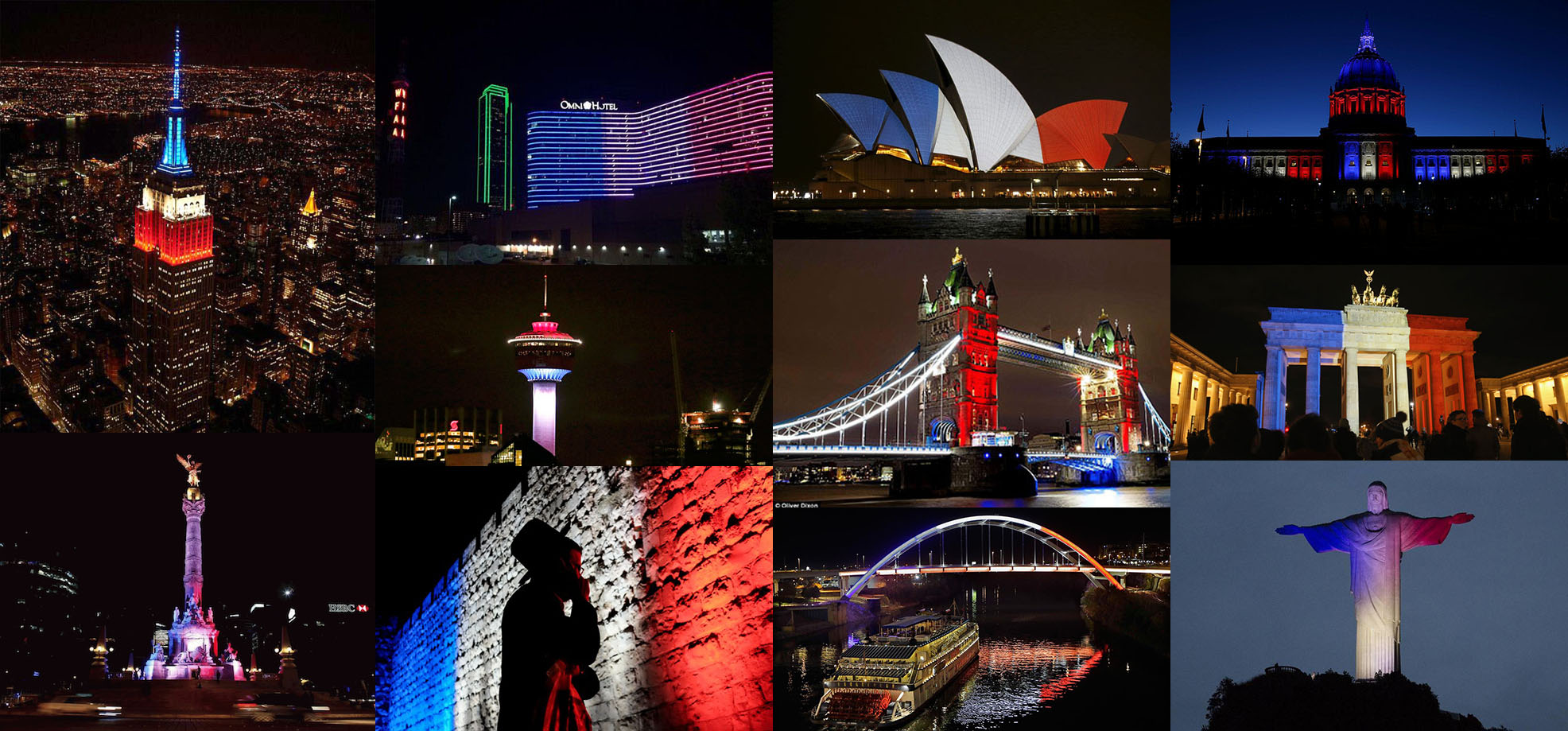
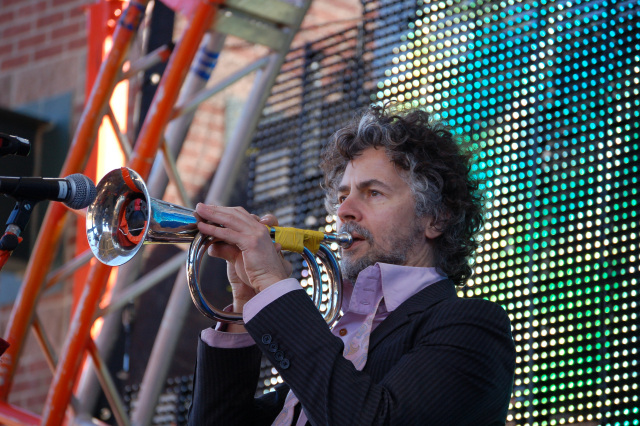

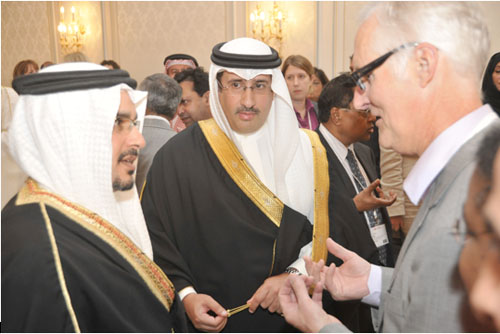
Comentários Recentes